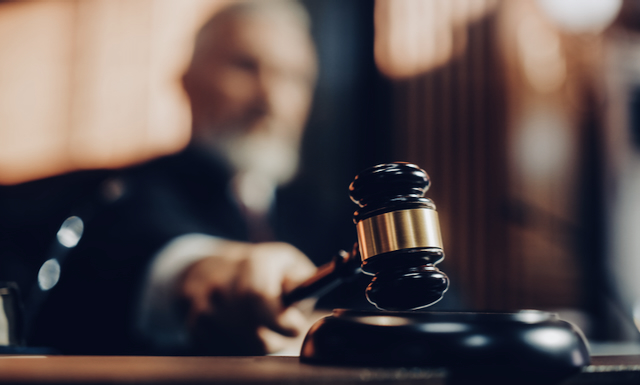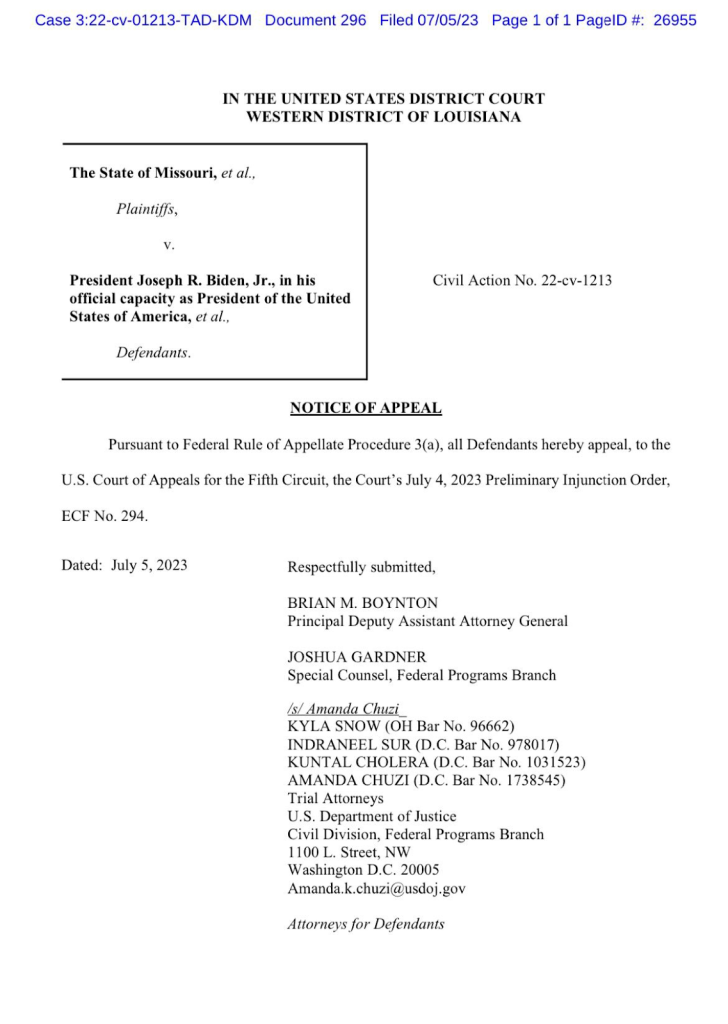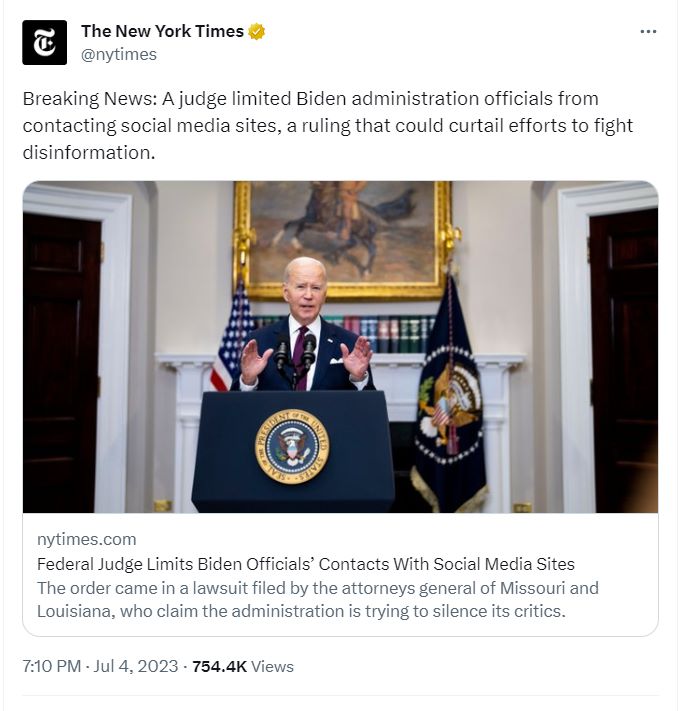
A win for due process…. for now
We recently reported on a few encouraging examples of judicial pushback against ‘covid tyranny’ in the USA. That article made reference to the case of Missouri v Biden.
As we stated previously:
Filed on 5 May 2022, in Missouri v Biden, the States of Missouri and Louisiana, together with several individuals (including Jay Bhattacharya and Martin Kuldorff) are suing the US Federal Government and various Social Media companies for colluding to limit free speech in contravention of rights of free speech enshrined in the First Amendment of the US Constitution.
It is no understatement to assert that the subject matter and the identity of the defendants makes this one of the most important cases ever heard in the history of the United States.
One would have thought that the media would be all over this case. Or maybe those of us attuned to the silence (or worse) which greets anything which is contrary to the government’s narrative wouldn’t be that shocked, actually.
In that article we reported on an ongoing preliminary hearing in which lawyers for the plaintiffs in the case are petitioning for an injunction to halt the activities of the government’s censorship-industrial complex while the substantive case is tried, on the basis that (1) they are likely to win at trial, and (2) harm is ongoing pending the final trial.
We are pleased to report that the decision of the District Judge Terry Doughty has now been published, and is a huge blow to the US government and its attempts to censor information available to the American public.
You can read more about the order made by the judge here.
Essentially, the government (including all the names agencies and individuals) are now barred by court order from continuing the activities by which they controlled information dissemination via social media to present their highly distorted version of the truth to American people and, by extension, the wider world.
The judge’s full reasoning can be found in his ruling here. It runs to 155 pages, but is well worth investing some time reading, as it contains some gems which (hopefully) will be repeated many times in future cases or legal textbooks.
The judge sets the tone by starting off with one of the most famous quotes ever made, attributed to Voltaire:
I may disapprove of what you say, but I would defend to the death your right to say it.
The remainder of the ruling is an evisceration of the government’s censorship-industrial complex.
Our favourite quotations are:
the evidence produced thus far depicts an almost dystopian scenario. During the COVID-19 pandemic, a period perhaps best characterized by widespread doubt and uncertainty, the United States Government seems to have assumed a role similar to an Orwellian “Ministry of Truth.”
And
The problem with labeling certain discussions about COVID-19 treatment as “health misinformation” was that the Surgeon General Defendants suppressed alternative views to those promoted by the government.
One of the purposes of free speech is to allow discussion about various topics so the public may make informed decisions. Health information was suppressed, and the government’s view of the proper treatment for COVID-19 became labeled as “the truth.”
Differing views about whether COVID-19 vaccines worked, whether taking the COVID-19 vaccine was safe, whether mask mandates were necessary, whether schools and businesses should have been closed, whether vaccine mandates were necessary, and a host of other topics were suppressed.
Without a free debate about these issues, each person is unable to decide for himself or herself the proper decision regarding their health. Each United States citizen has the right to decide for himself or herself what is true and what is false. The Government and/or the OSG does not have the right to determine the truth.”
This substack piece by Aaron Kheriaty, one of the Plaintiffs in the case as a victim of the censorship, provides further commentary.
Somewhat predictably, the defendants are appealing the decision, clearly terrified at the prospect of having to cease their activities.

Also predictably, legacy media giants such as the New York Times which played such a prominent role in the censorship-industrial complex, have portrayed the decision as one which “could curtail efforts to fight disinformation”, apparently oblivious to the difficulty in defining what is, or is not “disinformation”, and the hegemonic power which becomes dangerously vested in those who actually make such decisions.

Stop press 10 July 2023.
The Defendants motion to stay the injunction granted to the Plaintiffs on 4 July (which prohibited them from contacting social media companies to censor “protected” free speech”) has – thankfully – been denied. The withering judgment can be read here.
